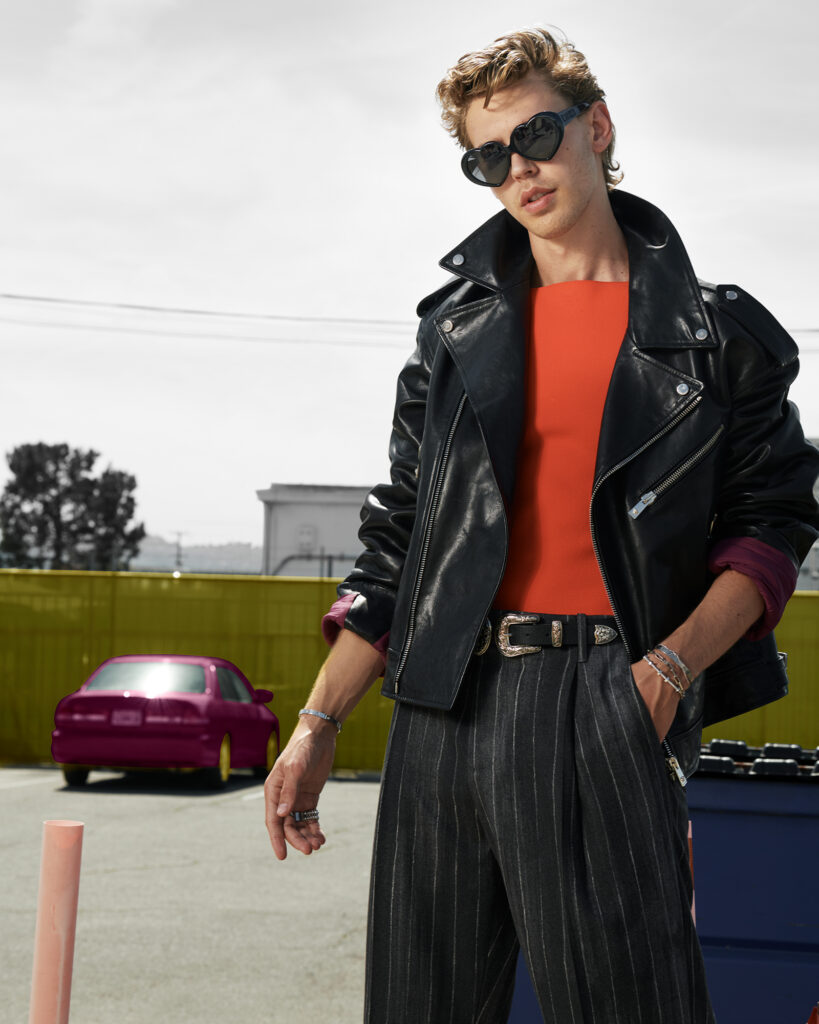VMAN 49 Fall-Winter 2022 issue is now available for purchase
At the time of this interview in April, Austin Butler had not yet seen Elvis, the film that would make him a household name. “I know that the first time I see it, well, I will never get to see it for the first time again,” he says through the computer screen. He’s sitting on a couch in Los Angeles, sporting a plain white t-shirt, his hair both messy and coiffed. As anyone with a pulse and Internet connection knows, his voice is eerily similar to the King of Rock and Roll’s. It’s not obvious whether he’s waiting to see the film out of nerves or excitement.
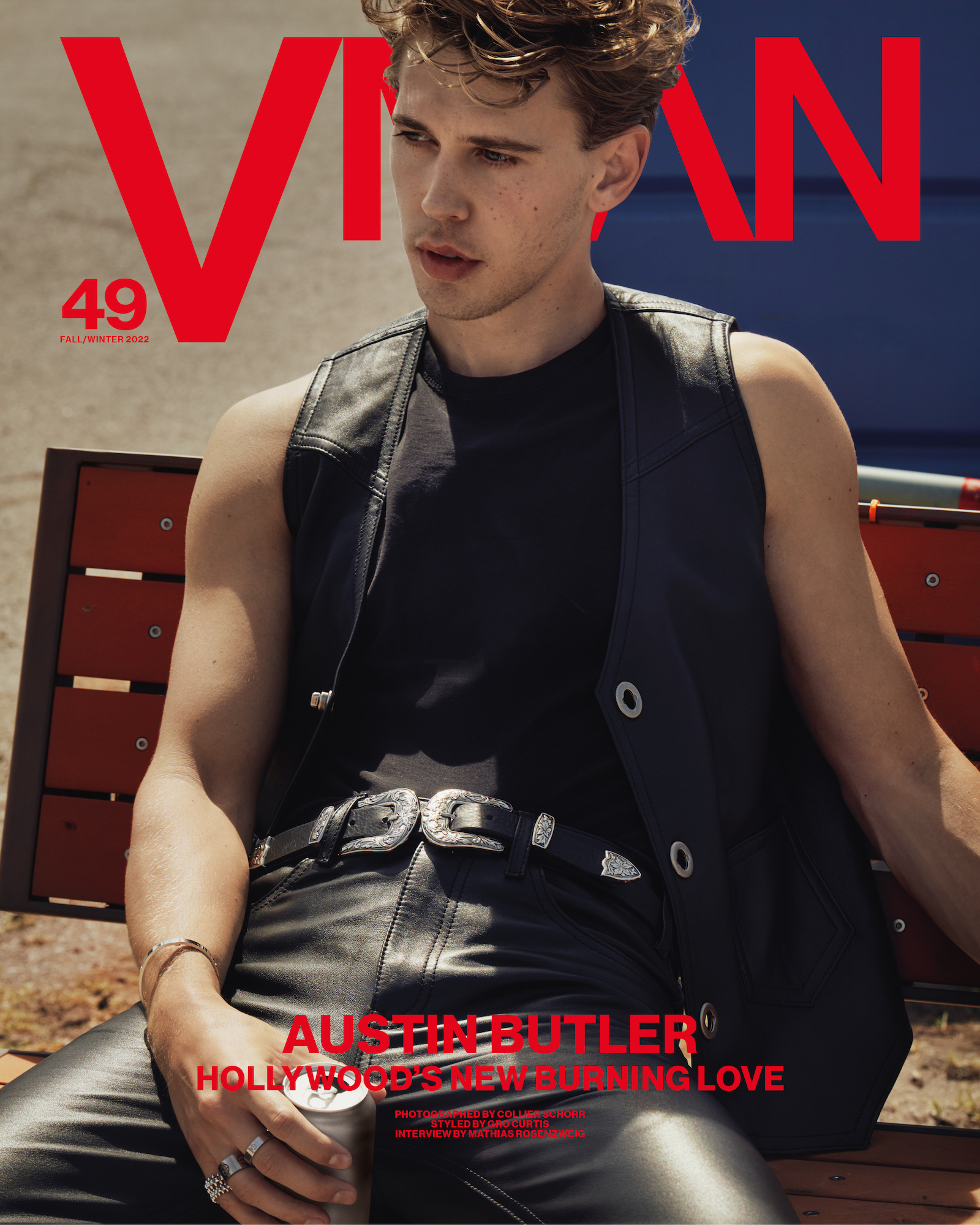
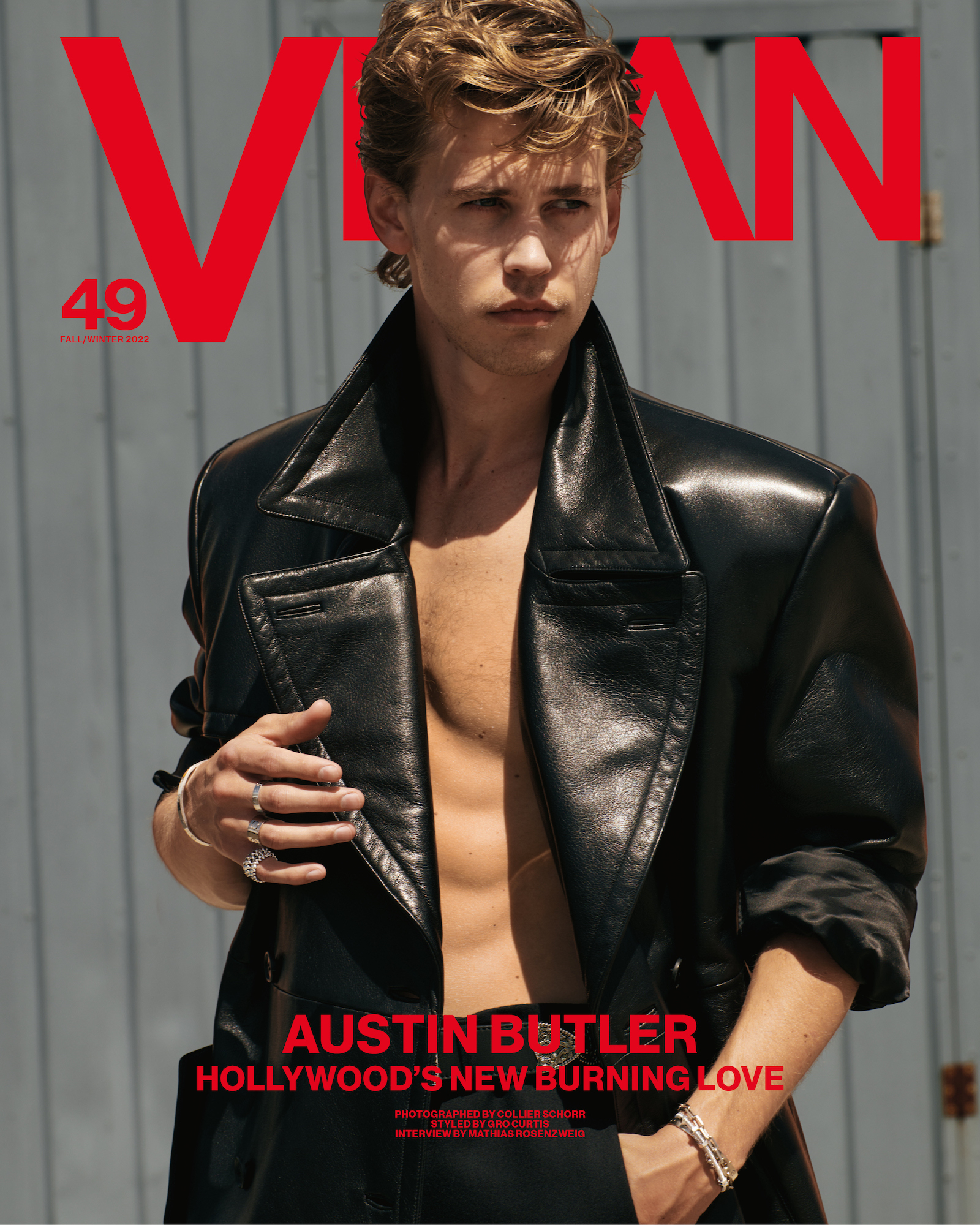
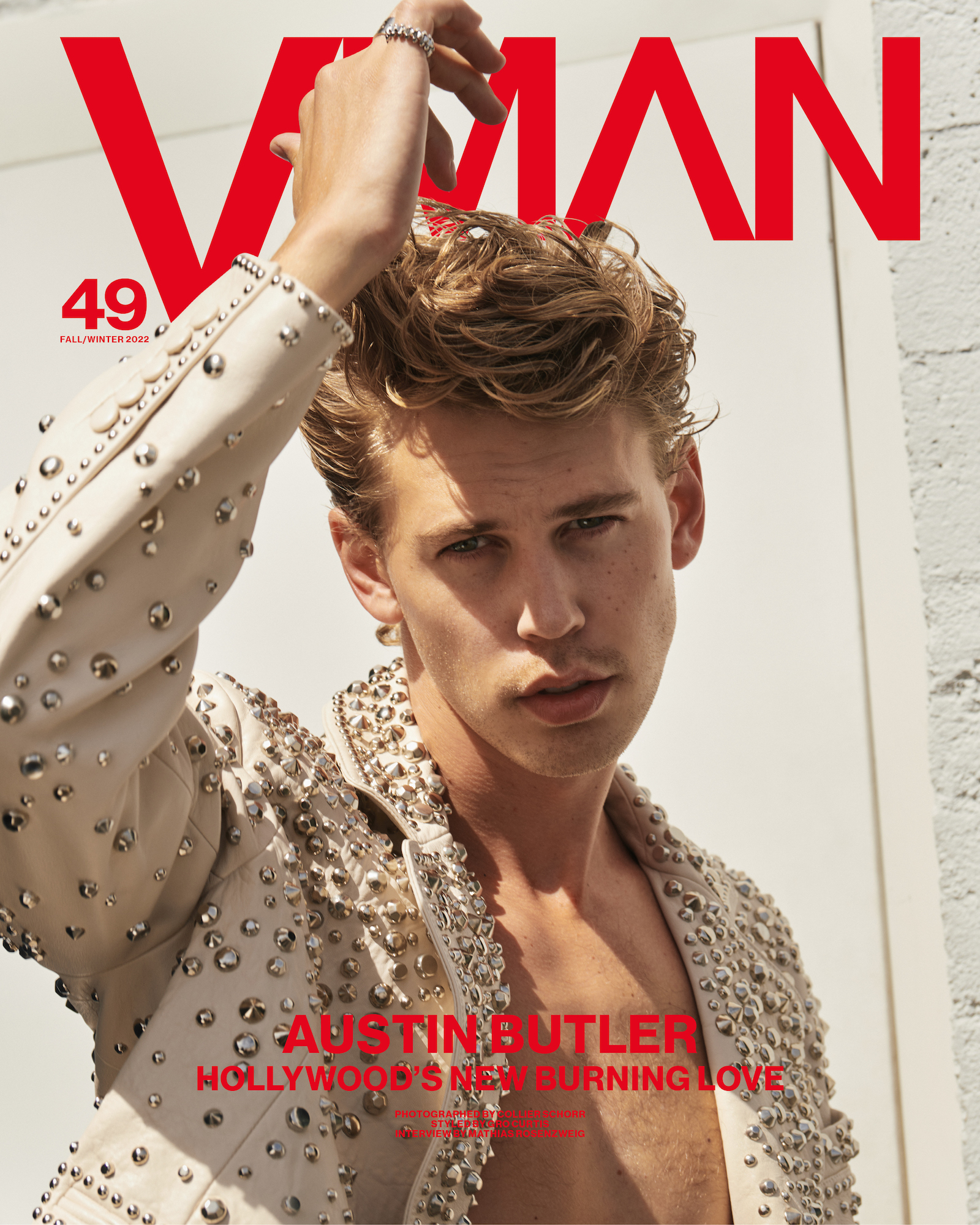
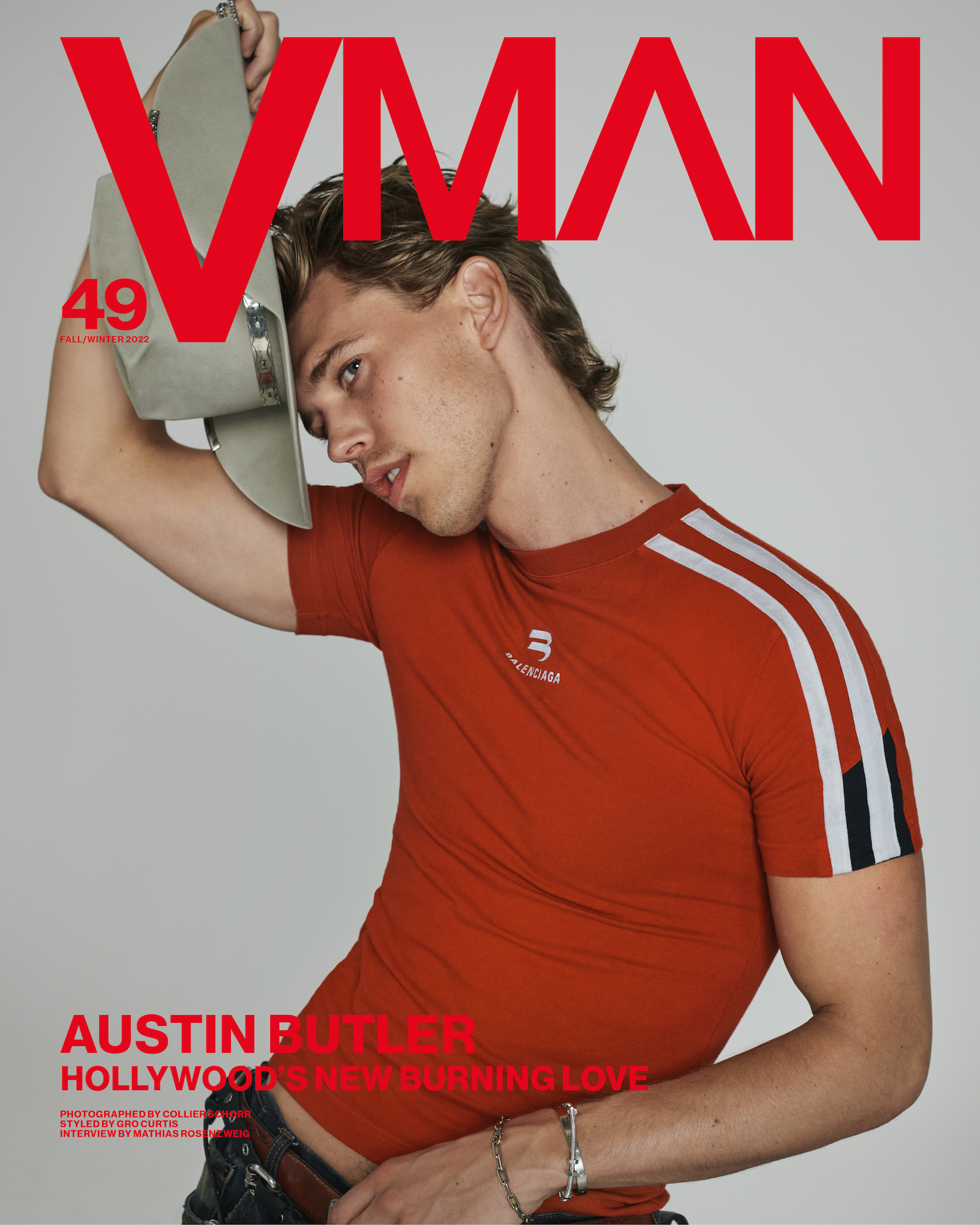
This patience, tied to the 31-year-old actor’s diligence, is part of what piqued director Baz Luhrmann’s interest in the first place. After receiving an audition tape from Butler in which he was wearing a white bathrobe, the actor’s face a “flood of tears” as Luhrmann put it, the visionary filmmaker got a phone call from Denzel Washington, whom he’d never met. Washington had starred alongside Butler in Broadway’s The Iceman Cometh and told Luhrmann that the young actor’s work ethic was unbelievable. This won the director’s favor over other contenders, including Harry Styles, whom he refrained from casting because, as he told Australian radio station Fitzy and Wippa, “He’s already Harry Styles. He’s already an icon.”
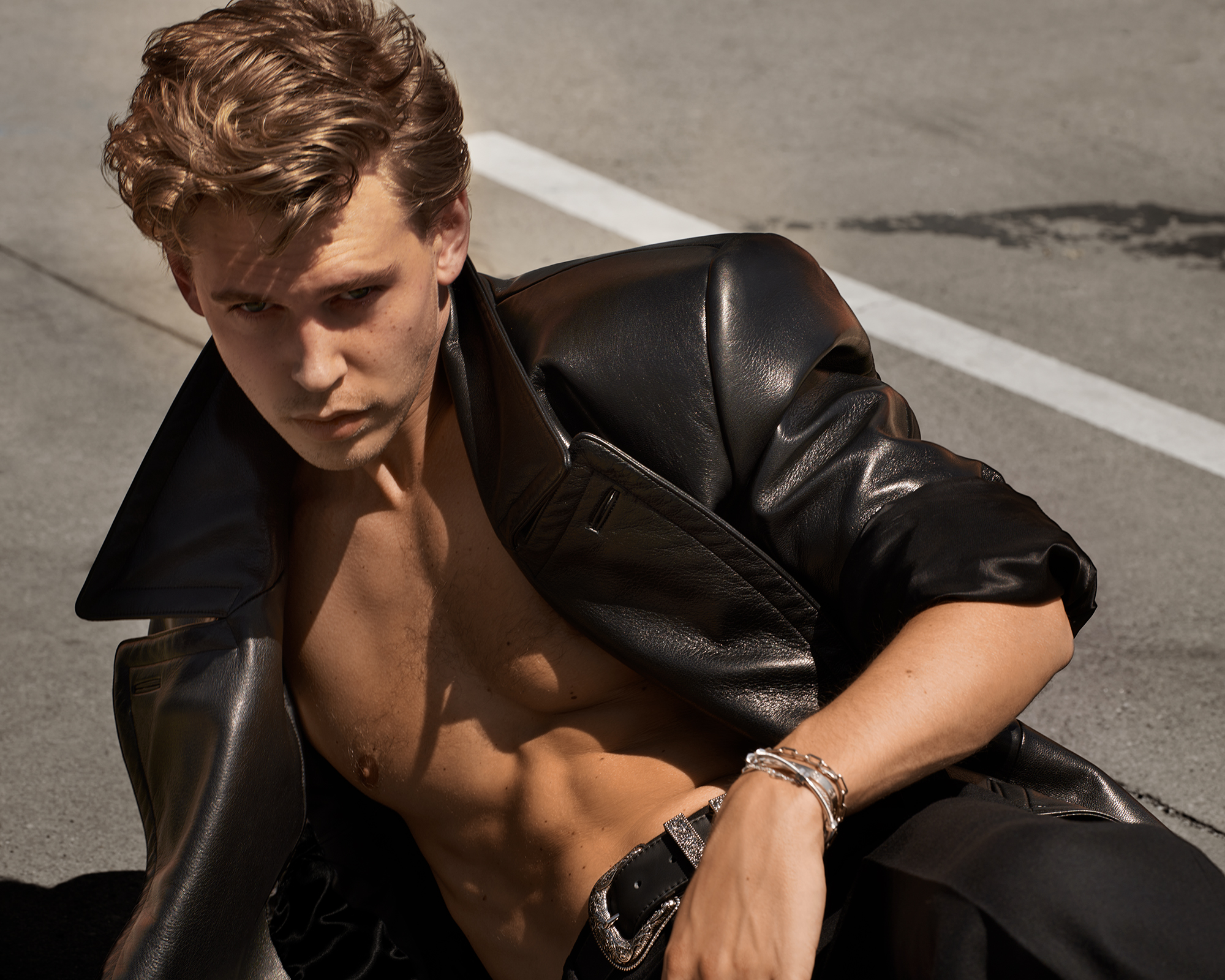
Luhrmann and Butler dove into preparations head-on. About a month after casting him, the director accompanied his leading man down to the historic RCA Studio B in Nashville, Tennessee where Elvis famously recorded over 200 songs. Other voices that have filled the space between those four walls include those of Dolly Parton, David Bowie, and as of recent, Austin Butler, who recorded music for the film therein.
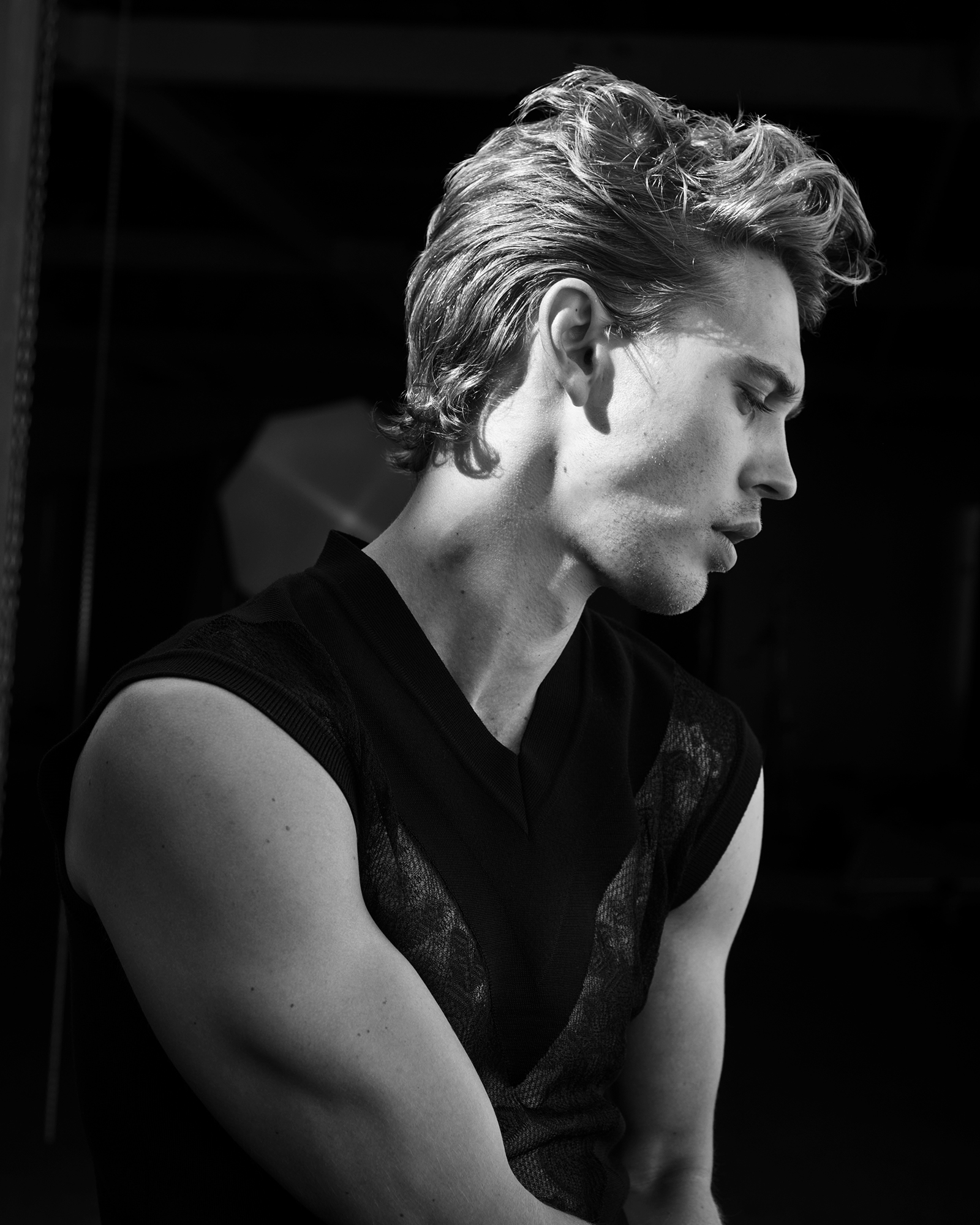
“I was so nervous, and we were recording on actual equipment that Elvis recorded ‘Heartbreak Hotel’ on,” he remembers. Butler was told that the studio visit would be laid-back and playful, saying they’d just be recording one line or so at a time while workshopping the voice. “We got down there and it was not that at all,” he says, laughing somewhat sheepishly. “We were recording old school, where all the musicians—and these are the best musicians in the world; our guitar player had actually played guitar with Scotty Moore, who was Elvis’s guitar player—we were recording the entire song. And so that was how I cut my teeth in the recording studio.”
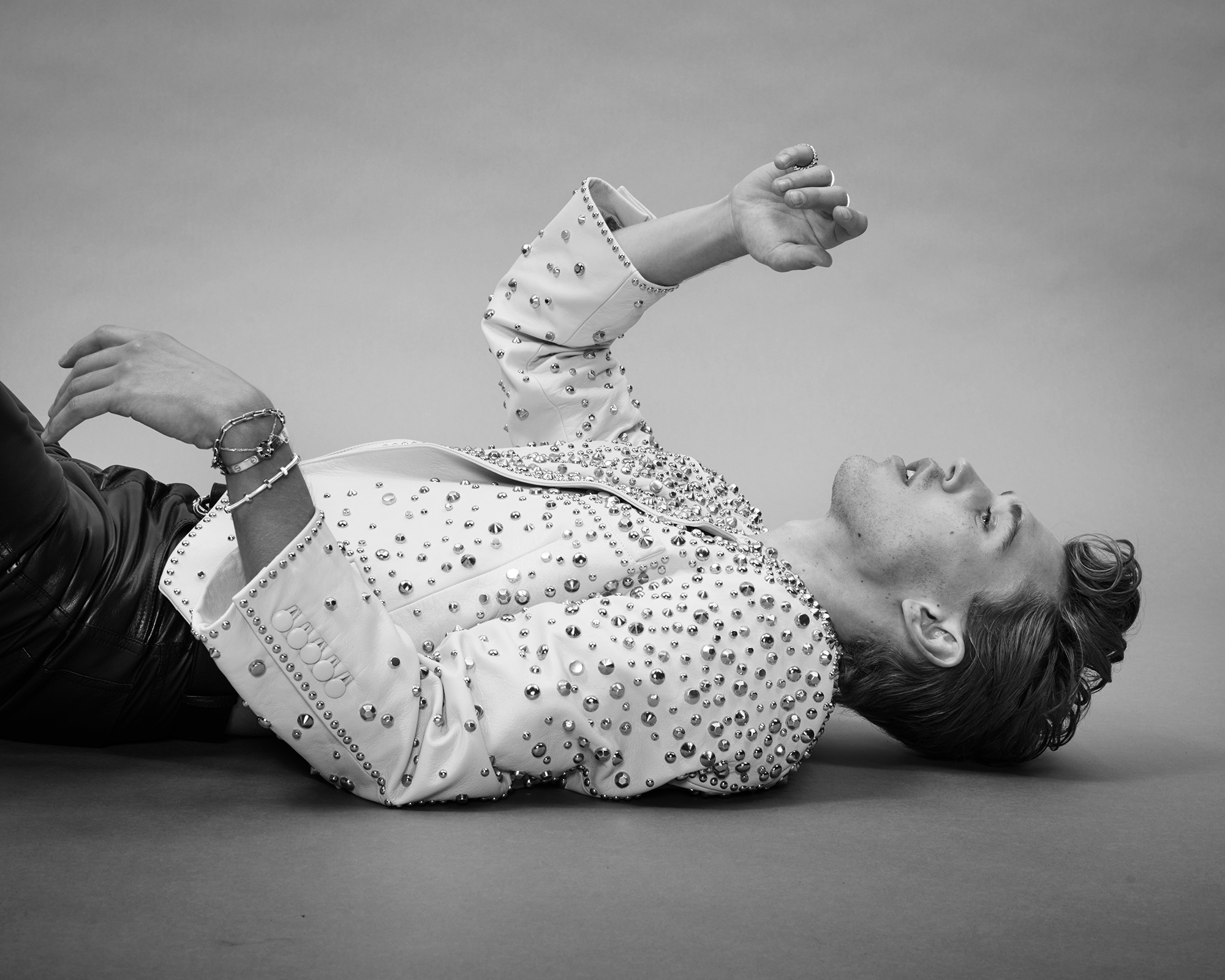
Butler’s general air when telling these stories is grateful and bewildered, in slight disbelief of his own life over the past few years. He is friendly and hesitant to complain, but I push him on the latter, saying surely the recording studio experience was a trying one.
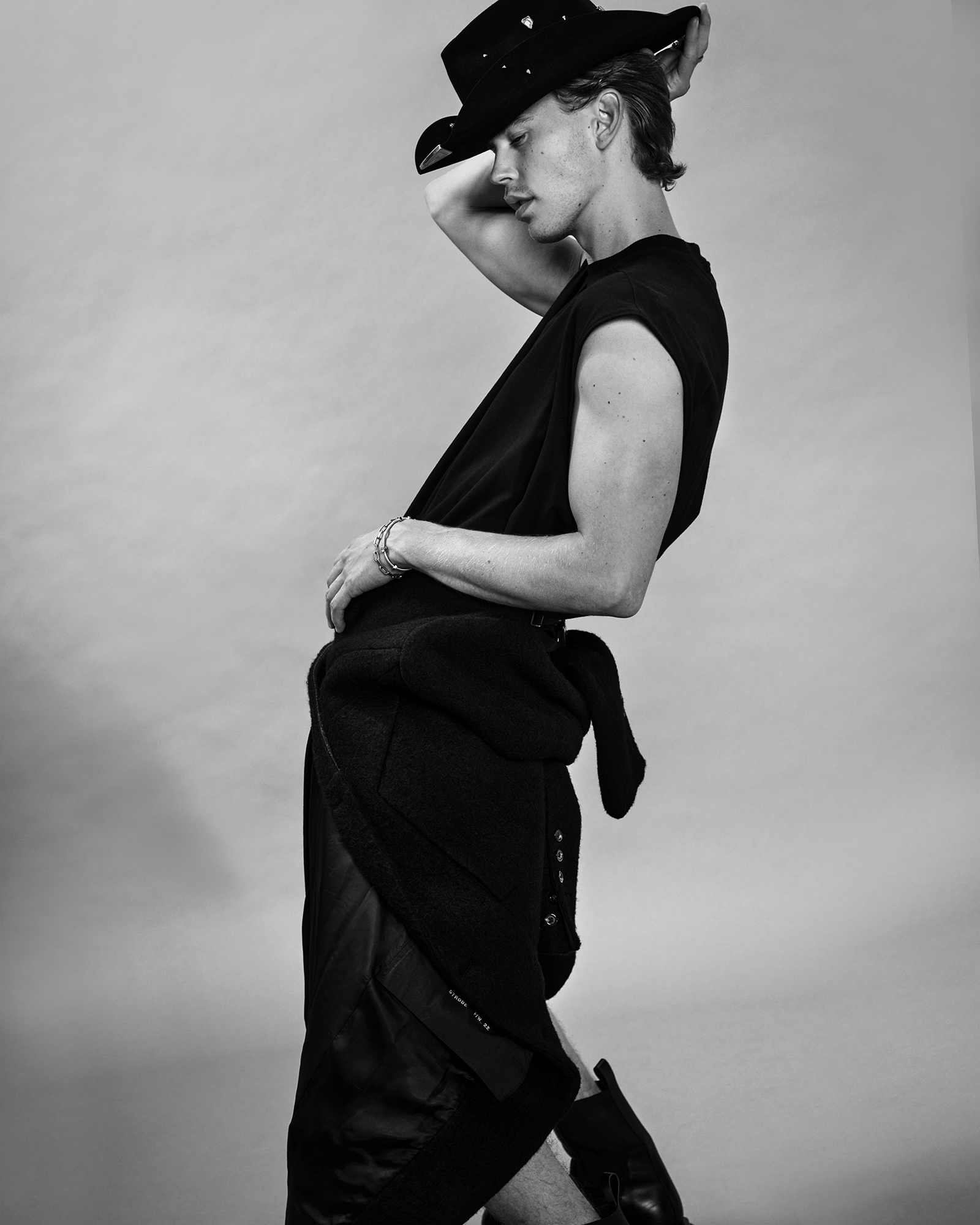
“Well, when I was on my first day in the recording studio, Baz wanted me to get as close to performing as possible,” he says, searching his mind for that day years back. “He had all the executives and everybody from RCA, who were back in the offices, he brought them into the recording studio and he goes, ‘I want you all to sit facing Austin,’…and he told them to heckle me. So then they were making fun of me and stuff while I was singing.” There was, of course, a reason behind the humiliation. “When we were filming this moment when Elvis first goes on stage and he’s getting heckled by the audience, I knew what that felt like,” he says. “I went home in tears that night. I really did.”
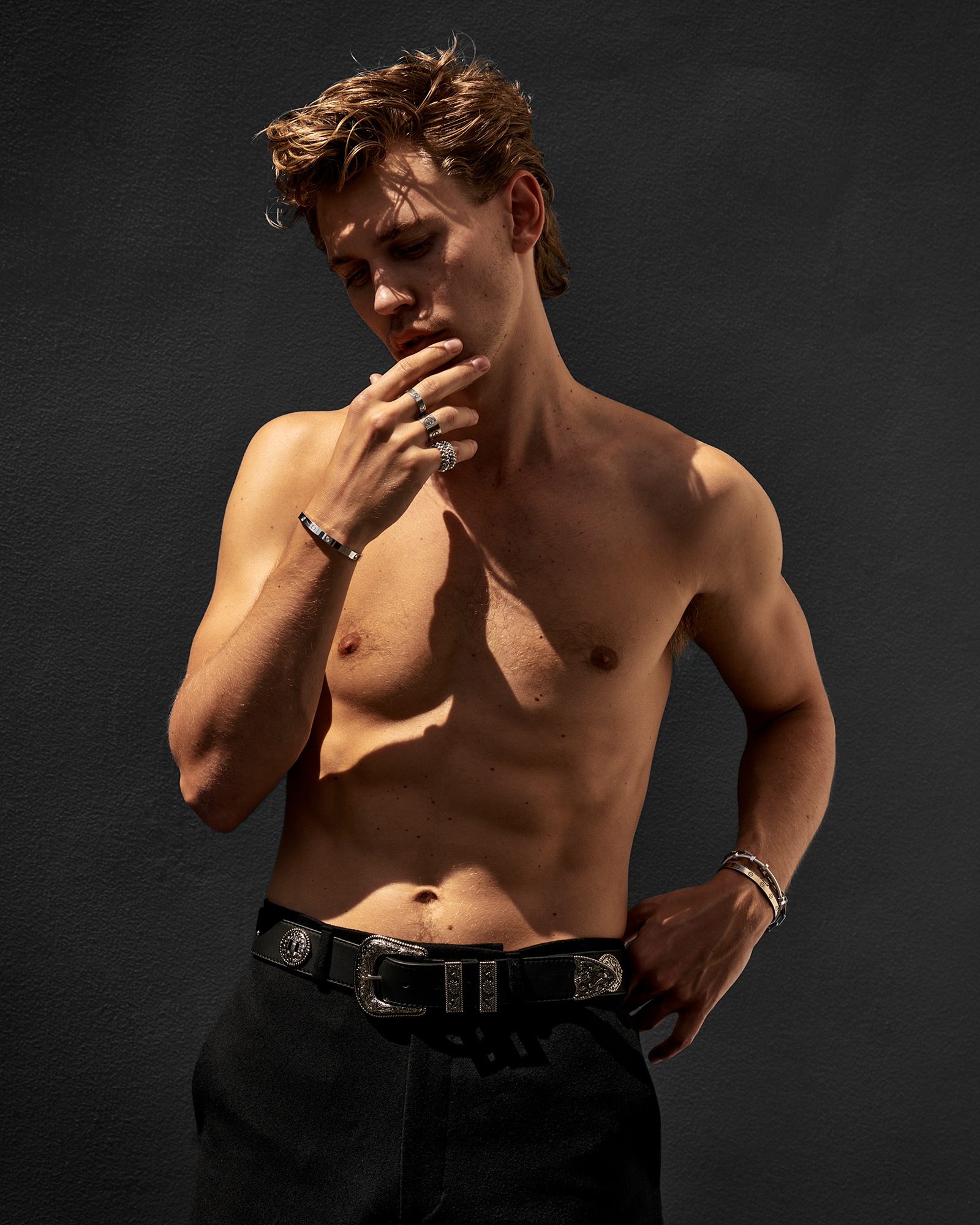
To be fair, Butler had been warned by fellow actor (and one of his childhood idols) Leonardo DiCaprio, who famously worked with Luhrmann on the director’s Romeo + Juliet film, starring DiCaprio along with Claire Daines in the titular roles. “I had spoken to Leo before and he said, ‘Baz is gonna push you in ways you didn’t know somebody could,’” Butler recalls. “‘He’s gonna push you off balance and keep you off balance.’”

What really threw things off balance was the month of March 2020, which the world needed like Elvis needed a heart attack. Just days after they started filming, Butler’s co-star Tom Hanks, who plays Elvis’s troubled manager Colonel Tom Parker, became the first famous American to test positive for COVID-19. This was, of course, unsettling for everyone involved—or rather, the entire human population, but especially those like Butler who were living in the same building as Hanks in Australia.
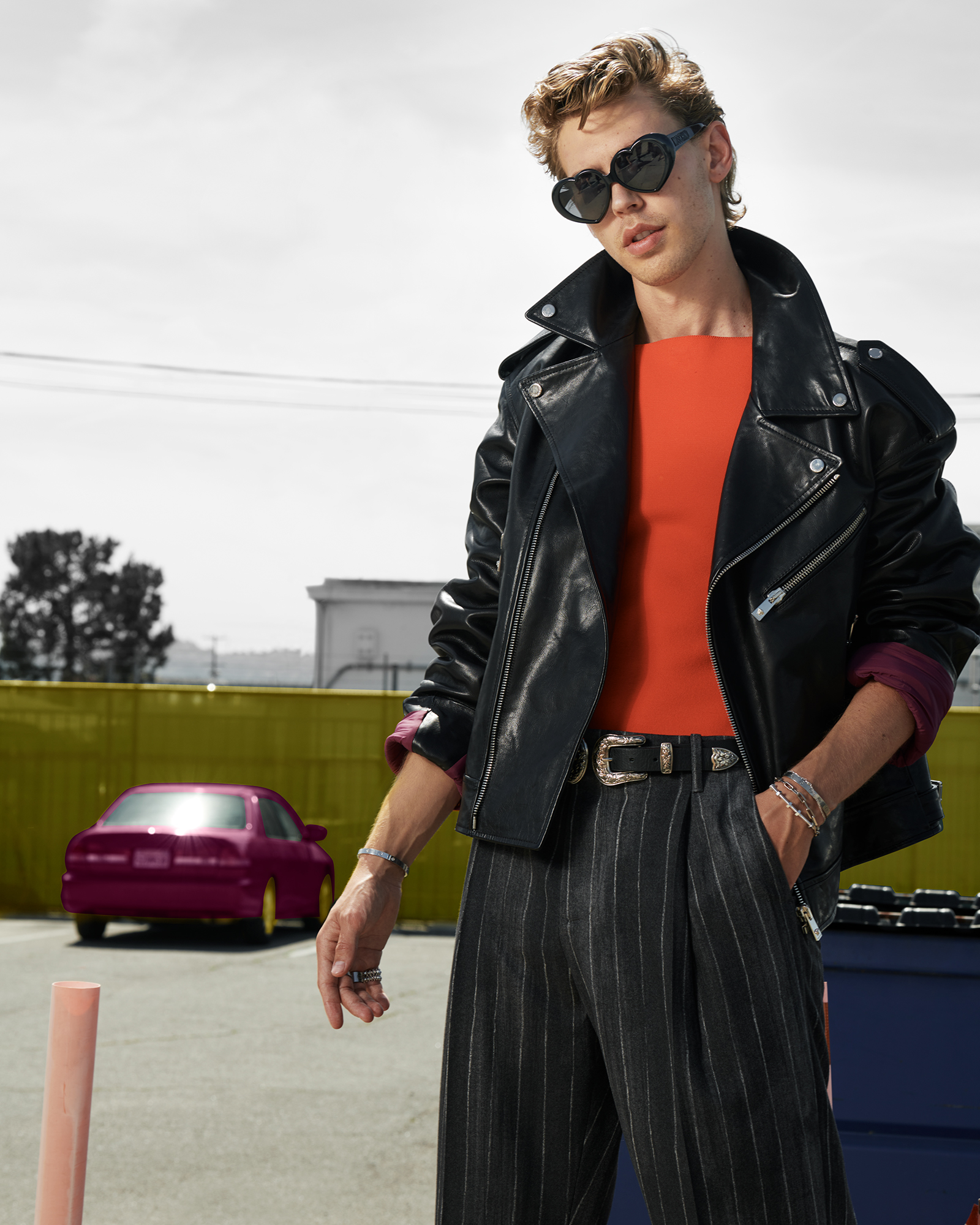
“The producers set up this meeting with us and the top scientists in Australia, disease experts or something. The whole cast was there and I was next to Tom…they’re teaching us about the virus and telling us everything they knew at the time, and at a certain point, Tom leans over and he whispers to me. He goes, ‘If I get it, you’re getting it too.’ Two days later, he got it. We were about four days into filming.”
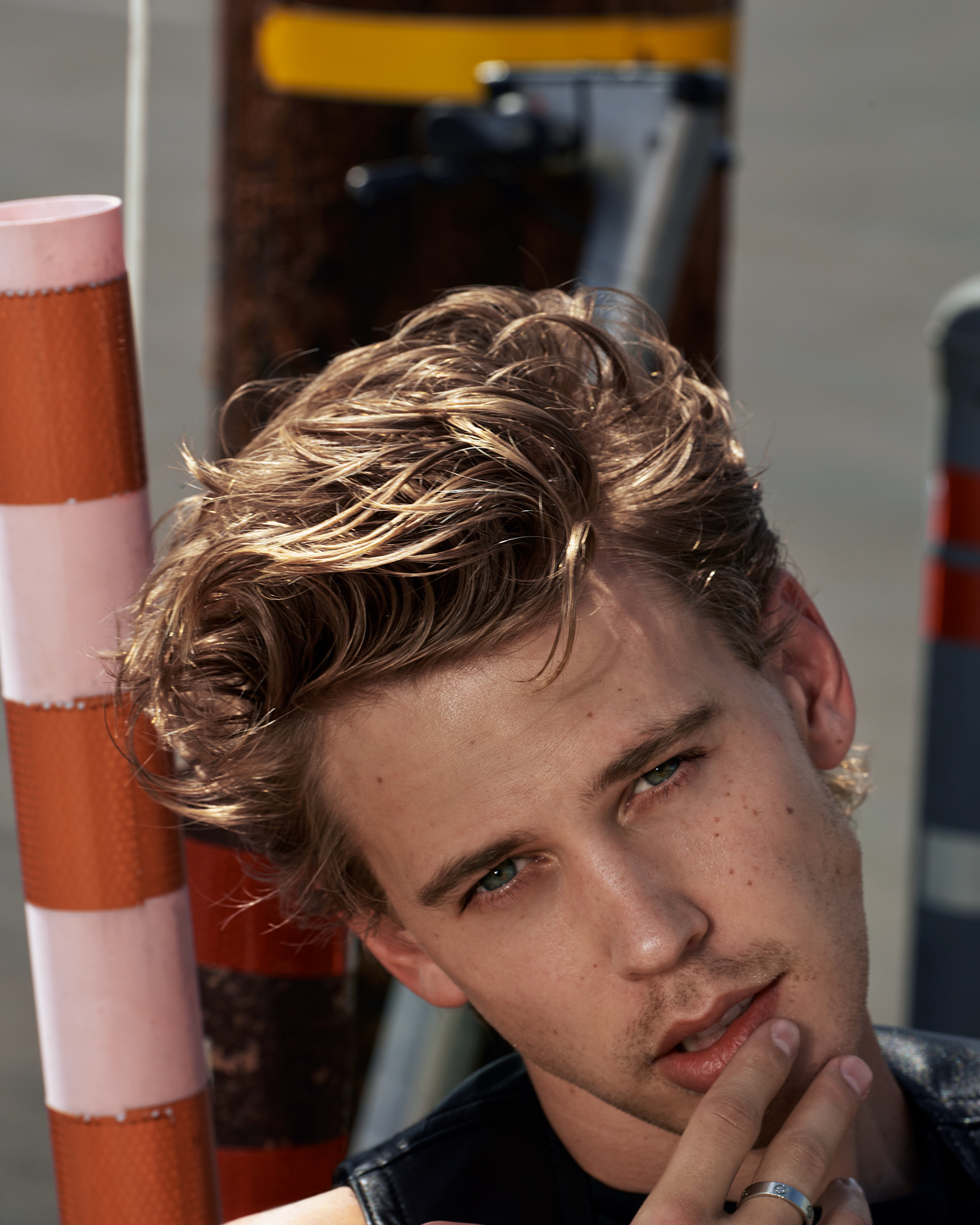
After studying rehearsal footage that showed Butler getting close enough to Hanks to contract the virus, he was forced to quarantine for two weeks. Hanks began to recover, but just as Butler was finishing his two weeks, producers called force majeure on the film.
“It just seemed to collapse,” he says. They began booking flights back to the States for all the U.S. actors, besides Butler, who refused. “I said, you know, if I go back, I’m gonna lose momentum. I would rather stay, even if I have to pay for my own apartment in Australia and be there while nobody is there. So I stayed in Australia and it turned out to be six months that we shut down.”
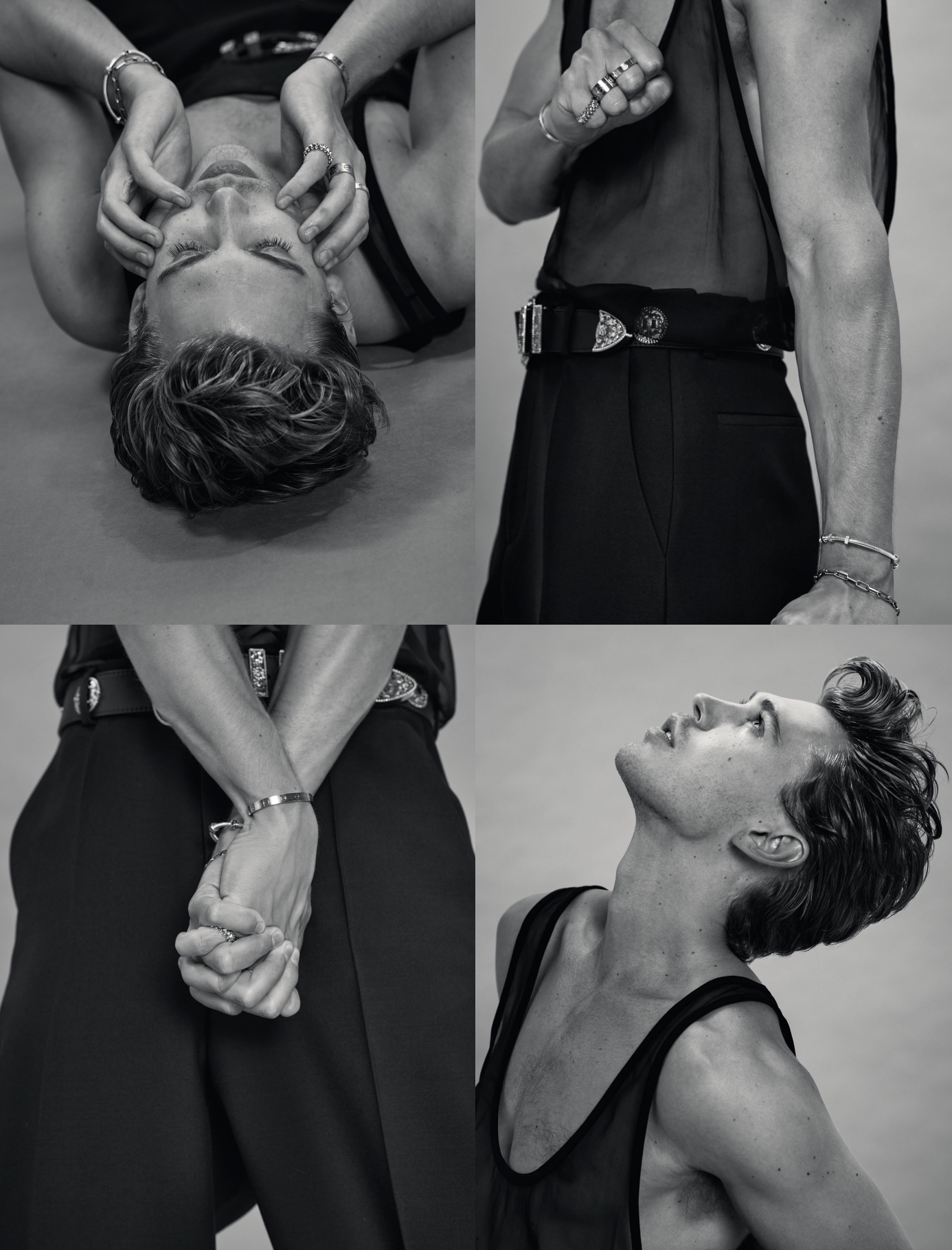
Like the rest of us, those were dark and unfamiliar times for Butler. “I didn’t have a hug for three months at one point,” he says. The now-isolated actor doubled down on his Elvis obsession, leaning into it as an escape of sorts from a crisis that seemed to further sour by the minute. He “wallpapered the entire apartment with images and a timeline of Elvis’s life,” consuming every book, documentary, song, and so on that he could get his fingers on. “I’m extremely grateful I had the film and the, for lack of a better word, obsession with Elvis to occupy my days,” he says. “It gave me the feeling that there was a reason to get up every morning.”
The truth is, acting has been Butler’s reason for getting up in the morning since he was an adolescent. “When I was 12, I watched Pulp Fiction for the first time,” he says. “That was the first time that it hit me, that a movie could be like that, that you could write a film like that. So I printed out the script, and I lived in Orange County at the time and my mom and I would drive up to auditions or acting classes. And I would read the Pulp Fiction script out loud to my mother in the car.”
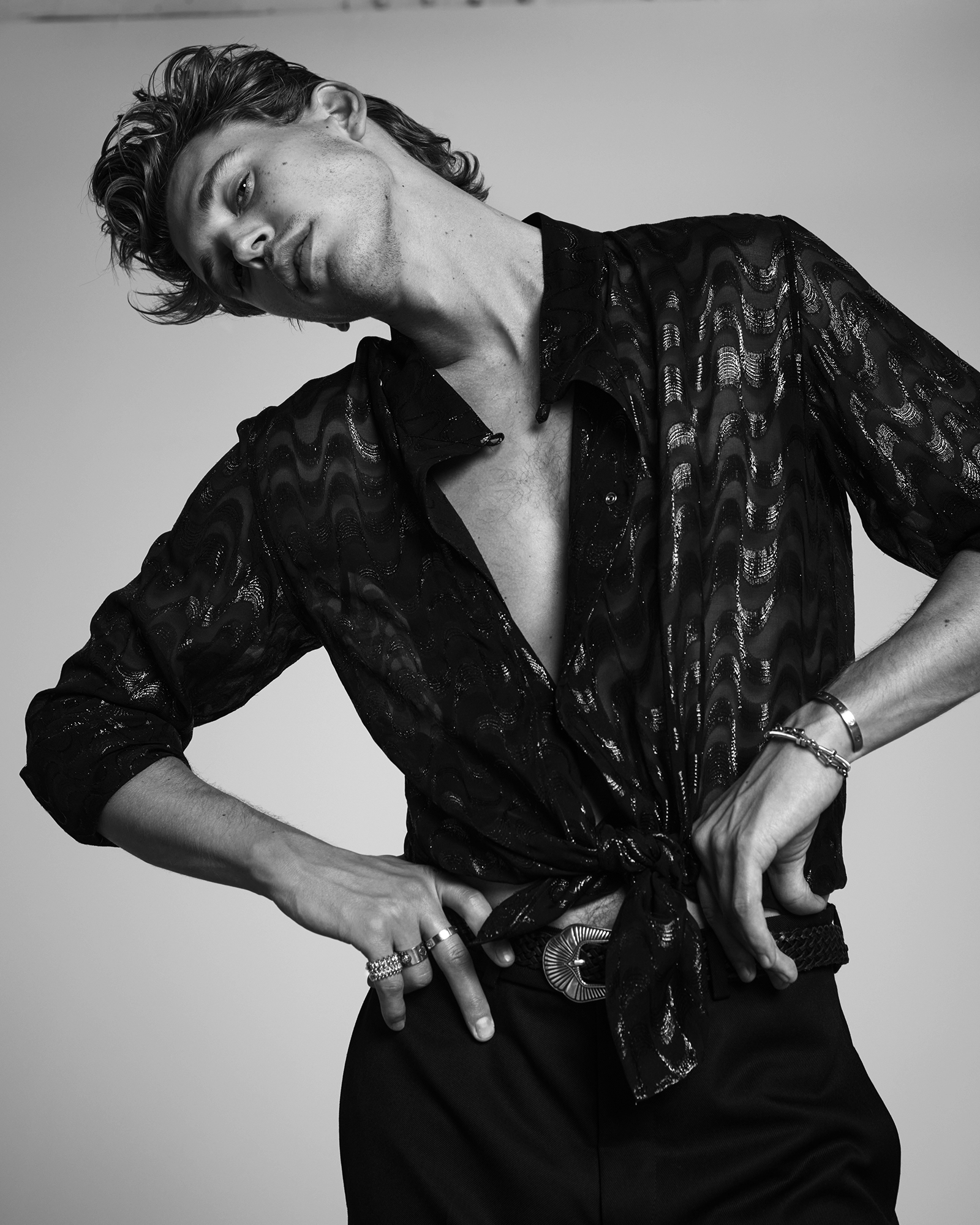
Driving around Los Angeles with his mother like this landed Butler roles on Nickelodeon and Disney, like Wizards of Waverly Place and Zoey 101. He was getting steady acting jobs to pay the bills, but was less than artistically satisfied. “For most of my career, I was doing things I wasn’t really proud of,” Butler admits. “I was doing work that I would watch and cringe.”
This past has made Butler particularly proud of his career-changing role as Elvis. That his mother passed away when he was just 23, the same age Elvis was when his mother passed, is one of the many similarities between the two men (these similarities and divergences are predictably under the microscope of any entertainment publication right now). “My mom was my best friend. Elvis’s mom was his best friend. I know what that felt like, losing my best friend and my mother at that particular time in my life.”
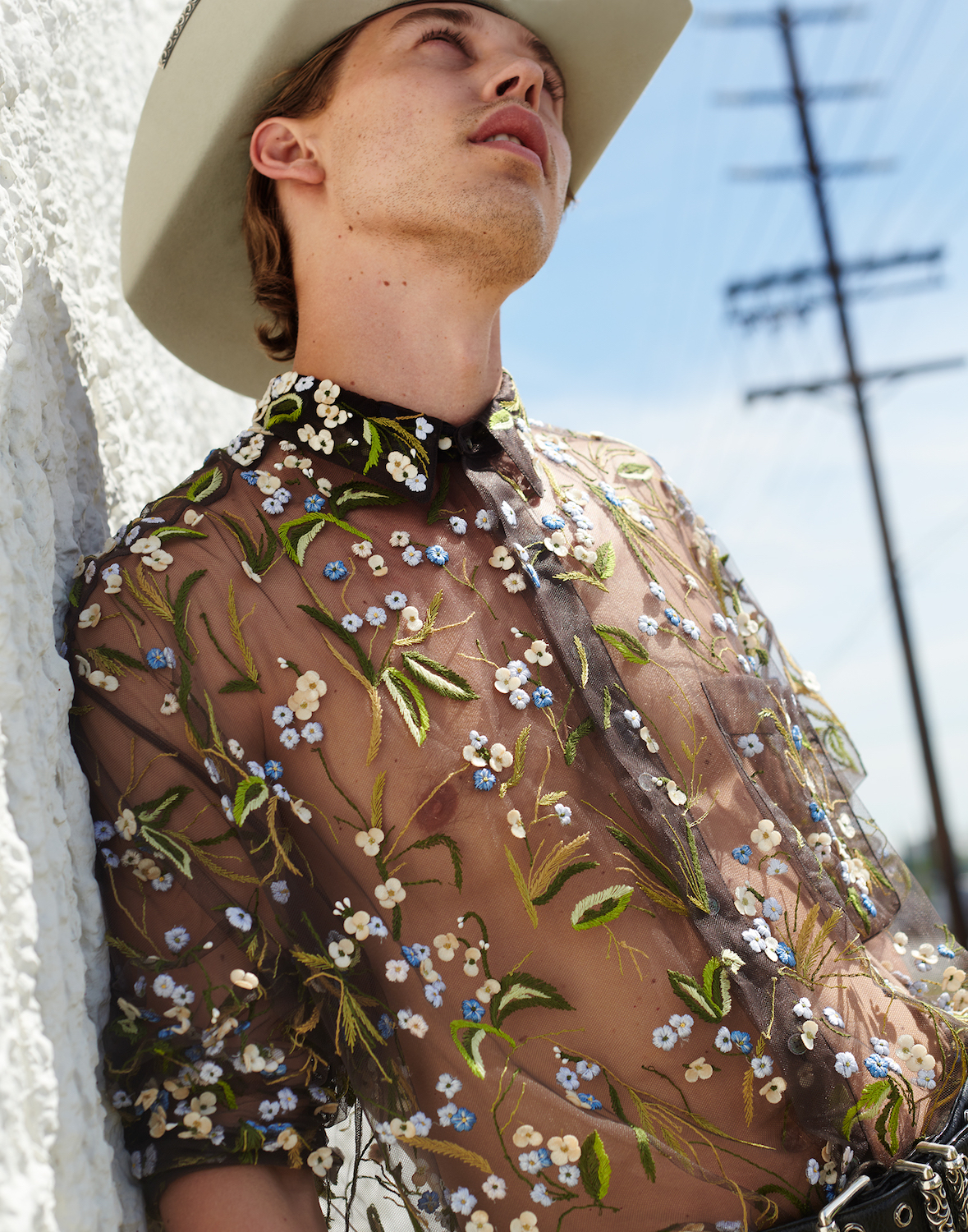
Another commonality, and perhaps the most striking one, is the men’s transformations from being nervous and unsure of their talent to becoming larger-than-life stars. “When he was a kid, he would ask everyone to turn around in the room, and he would turn the lights off,” Butler says of Elvis, “‘cause he didn’t wanna play in front of people.” This lack of confidence helped humanize Elvis for Butler, who had trepidation over embodying someone that’s become more of a myth than real human with flesh and blood. “He’s so idolized that it’s a bit of a trap, to look at him and go, ‘Well, he’s so much bigger than me…I felt like a child wearing his father’s suit.’”
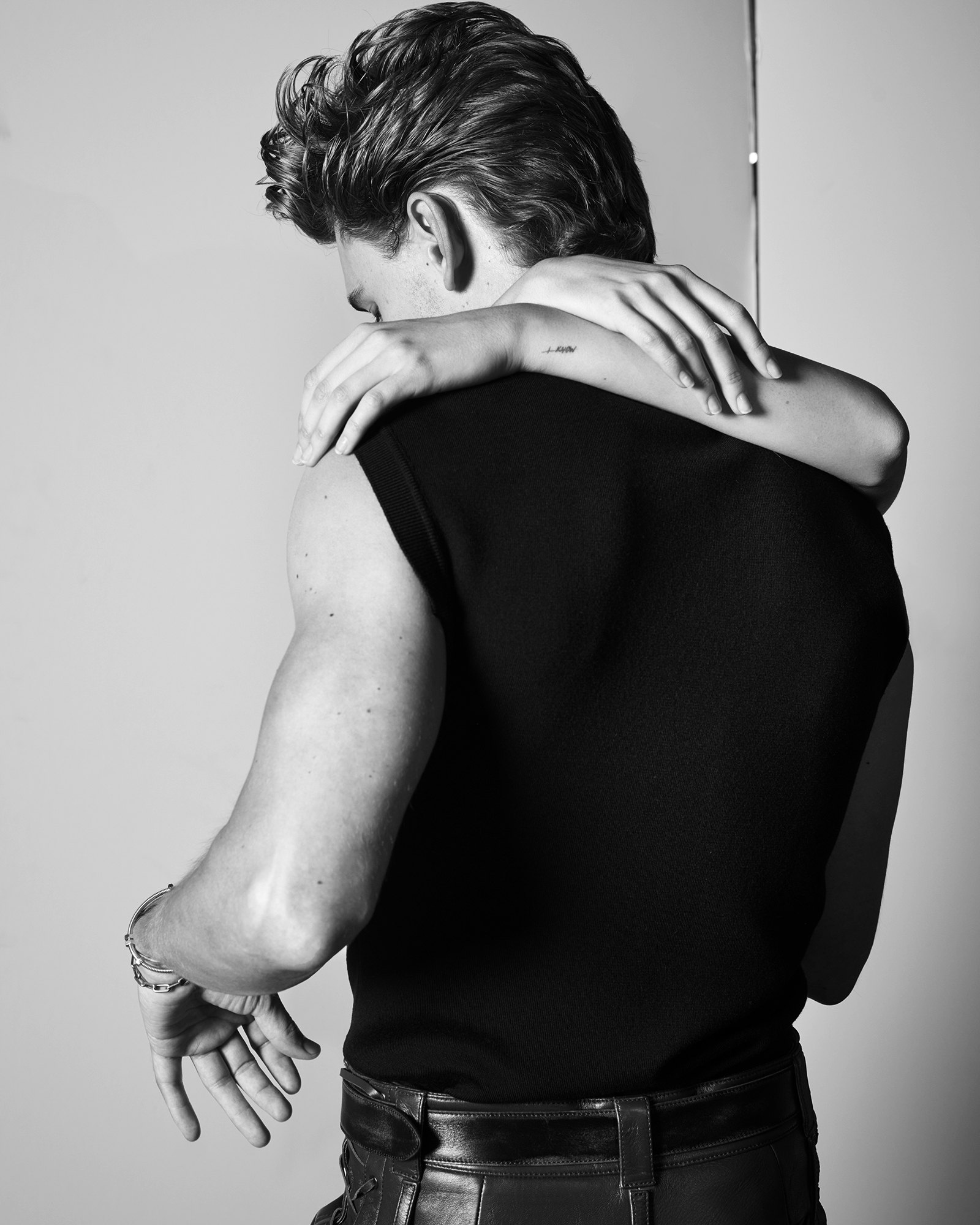
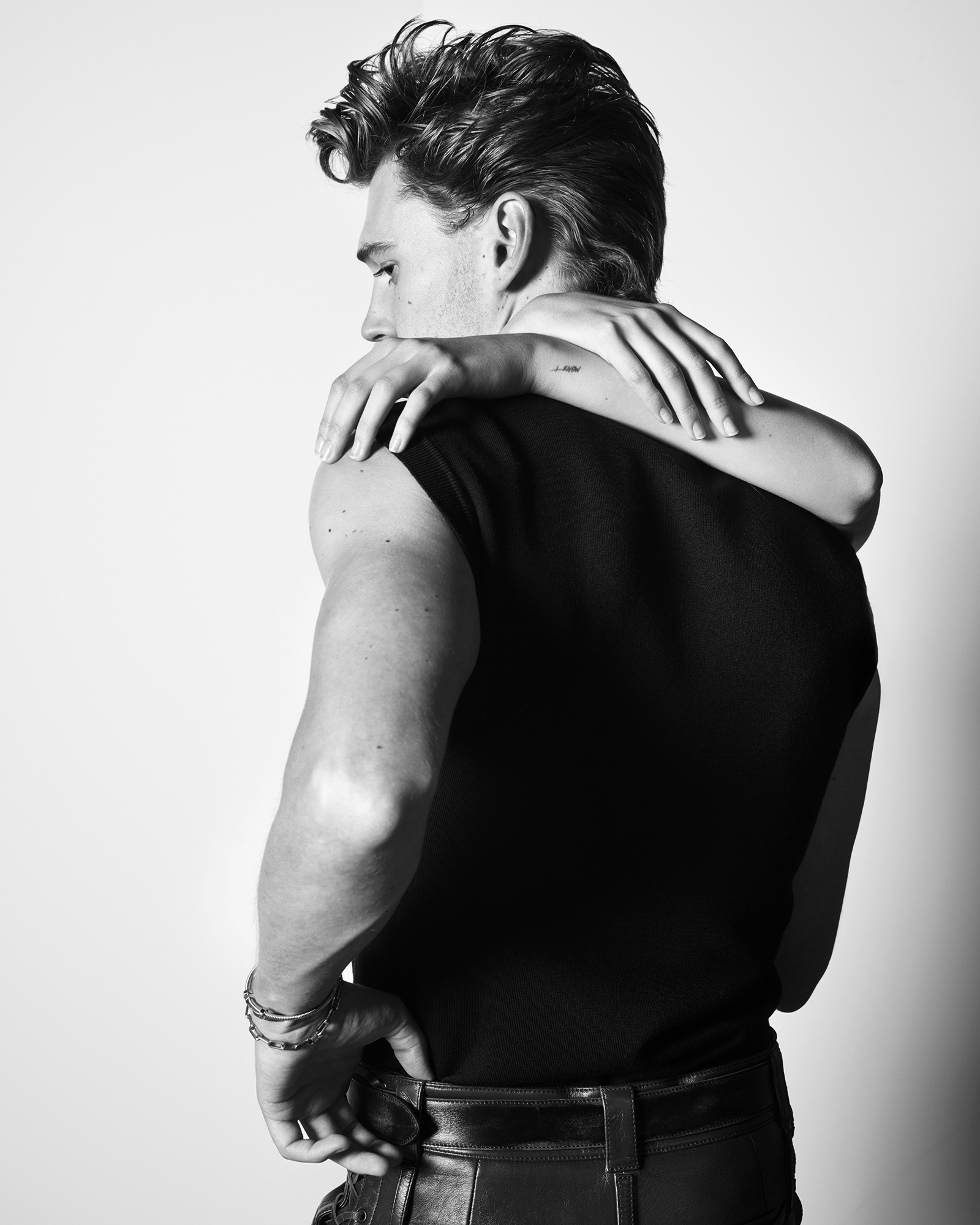
Just as Elvis went from playing in the dark to having his name in lights, Butler went from a shy but hard-working teenager to playing the most buzzed-about role in 2022, one that very well could win him a Best Actor Award. The suit he’s filling may be big, but it looks good on him. It’s as if, after his mother passed, Butler took the wheel of the car they used to drive around to in auditions and just floored it, those Elvis-sized shoes pushing the pedal to the metal. By the looks of it, he won’t be stopping anytime soon.
VMAN 49 Fall-Winter 2022 issue is now available for purchase
Discover More
